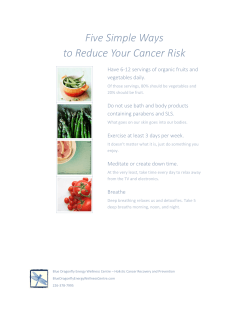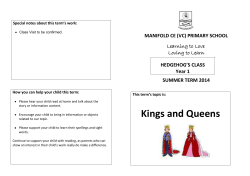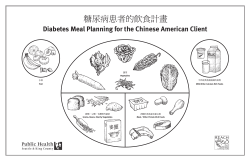
Into the Vegetable Garden Zeteo: By Stephanie Tsank
Zeteo: The Journal of Interdisciplinary Writing Into the Vegetable Garden By Stephanie Tsank Review of Vegetables: A Biography, by Evelyne Bloch-Dano, trans. Teresa Lavender Fagan (The University of Chicago Press, 2012) First you greet the gardener, and then you encounter Hegel among the peas. — Michel Onfray I f we are to forge a better connection between ourselves and the food that we eat, we might begin by entering into a small community garden. Once there, one might start by lightly grazing the serrated leaves of a tomato plant, noting the spines of a cucumber, or unearthing a bit of dirt from its resting place. What might these interactions mean? On the one hand, they signify a moment of relation—a moment in which one’s self and experiences begin to intersect with the natural world. Meanwhile, as we have just begun to prove, it is no secret that human interaction, cultivation, and manipulation of the earth and its resources have left stringent marks on the ways in which we produce, consume, and interact with food. It is not too late to reclaim the origins of food—of history, experience, flavor—and in the process understand a little bit better how nature and culture collide. Certainly, there has been much buzz about the subject of food in recent decades in the literary and media marketplace. From popular food blogs to celebrity chefs, from the Slow Food movement to Freeganism, food has consumed a lot of our attention lately. Similarly, walking into the culinary section of a bookstore, one will find a plethora of topics, concentrations, and gastronomic philosophies related to the consumption and preparation of food. Much like strolling through a garden, one might find, to his or her delight, one’s favorite ingredient or dish profiled. Books devoted to topics such as sausage, pie, soup, salad, healthy cooking, slow cooking, smoke cooking, comfort food, the joy of pickling— and ad infinitum—can generally be found in such sections. Naturally, these shelves are replete with recipe encyclopedias—such as Mark Bittman’s How to Cook Everything—which, as in this case, may span over a thousand pages. Closer to the writing that emphasizes the relationship between food and self, you may find David Tanis’s Heart of the Artichoke and other Kitchen Journeys, or M.F.K. Fisher’s The Art of Eating. Evelyn Bloch-Dano’s Vegetables: A Biography, contributes to the trend, of late, that has us thinking about how to better connect with our food for reasons that span spirituality, history, and health. For a little book—a small, unassuming collection of lectures totaling all of one hundred pages or so—it manages to cover a fair amount of philosophical ground. Bloch-Dano is not simply prodding the private lives and histories of vegetables; she is also prodding our own private lives and histories, and in the process, promoting a very specific lifestyle that is literally rooted in our careful interaction with life around us. Our relationship to vegetables, she contends, is one of pleasure, not simply necessity. More importantly, and this seems to be the crux of her argument: vegetables “represent the most fertile encounter between nature and culture.” This concept, though at times obscure, is primarily grounded in a few easily recognizable patterns. For instance: the movement of certain vegetables from indigenous cultures to colonizers and vice versa; various superstitions and cultural trends engendered by certain foods; vegetables or dishes that often represent class or status; and of course cultural trends supported by the emotional and nourishing aspects of foods. Certainly, this is a worthwhile topic to pursue, and BlochDano does so with a particular whimsy. Thus, in her endeavor, it is unsurprising that throughout these short biographies of ten vegetables—artichokes, beans, cabbage, cardoons, carrots, chili peppers, Jerusalem artichokes, peas, pumpkins, and tomatoes—Bloch-Dano intersperses poems, literary and philosophical excerpts, and informal recipes that create direct juxtapositions between the facts and feelings of existence. Furthermore, the prose itself, which is surely indulgent for those intimate with the language of food, likewise manages to support this delicate relationship. Given the importance of vegetables—perhaps now more than ever given our current battle with obesity and the necessity of promoting proper nutritional habits—imbuing them with flair and cultural significance is a useful enterprise. In this sense, one craves from Bloch-Dano more fleshed out connections between nature and culture. At times they seem hollow or disjointed. Despite Bloch-Dano’s noble mission, there are points at which the Zeteo Reviews 2 reader’s skepticism may be apt to burst forth in a disruptive fashion. The rather freeassociation aspect of Bloch-Dano’s prose, or its “slice of life” style, is charming and works well with the subject matter, but it can also leave one hankering for a more grounded connection. For instance, her contention that the cultural shift from Baroque to classicism was mirrored in the culinary attitudes of seventeenth century Europe seems mere speculation, and remains largely unexplored. Likewise, the shift from historical information to poetics or etymology can be jarring without the proper connective tissue. Yet, ultimately, Bloch-Dano does provide us with a solid entry into what one can only hope are more such discussions. To that effect, perhaps Bloch-Dano’s collection of lectures can be like a first stroll in a garden, lingering briefly by each vegetable. Though, after reading this collection, one might be ready to set up camp there for a while. Stephanie Tsank is a recent graduate of the City University of New York Liberal Studies program and a current doctoral student in English at the University of Iowa. She served as Editor of Zeteo from 20112012. Tsank 3
© Copyright 2025





















